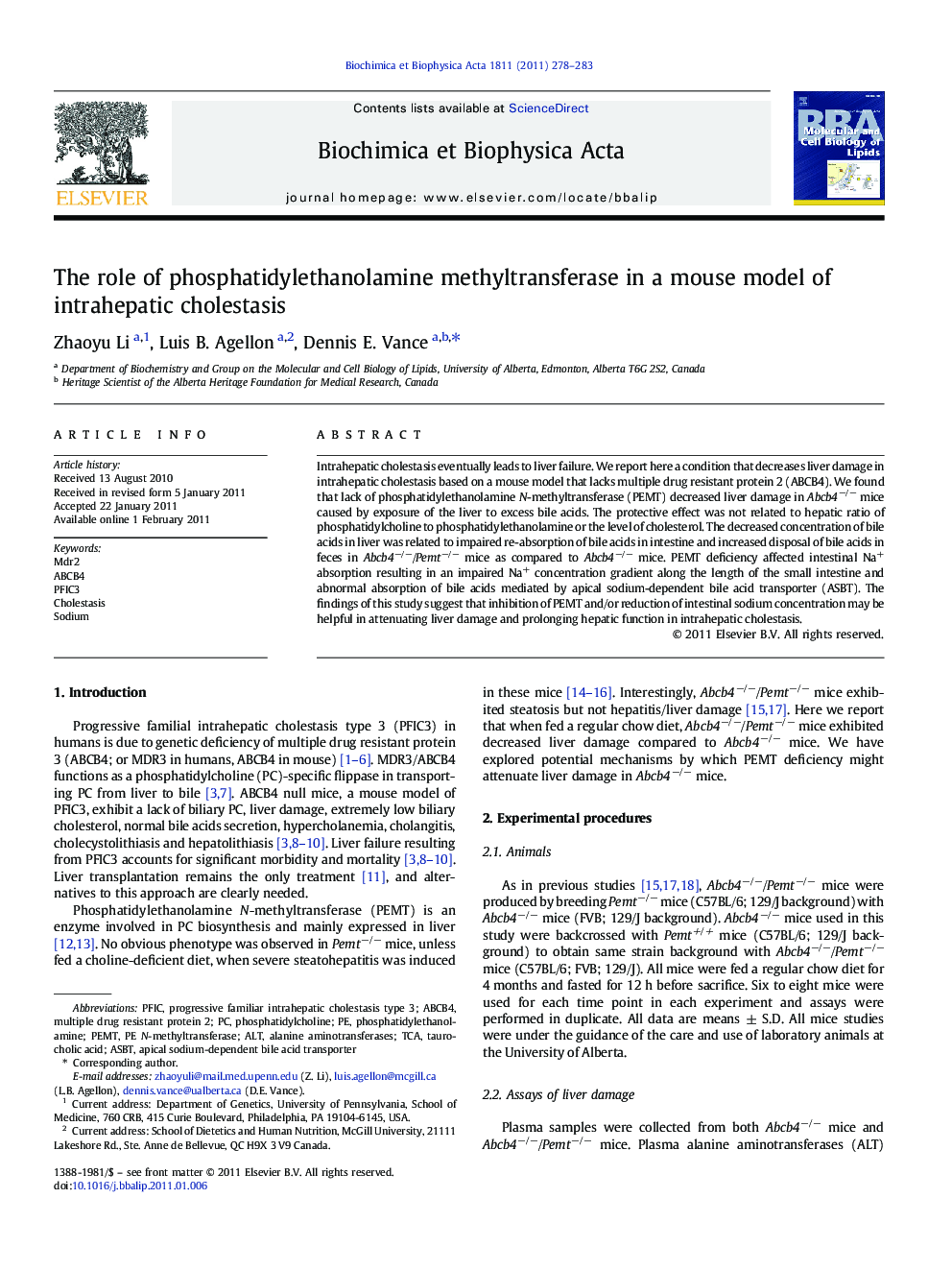| کد مقاله | کد نشریه | سال انتشار | مقاله انگلیسی | نسخه تمام متن |
|---|---|---|---|---|
| 1949568 | 1537766 | 2011 | 6 صفحه PDF | دانلود رایگان |

Intrahepatic cholestasis eventually leads to liver failure. We report here a condition that decreases liver damage in intrahepatic cholestasis based on a mouse model that lacks multiple drug resistant protein 2 (ABCB4). We found that lack of phosphatidylethanolamine N-methyltransferase (PEMT) decreased liver damage in Abcb4−/− mice caused by exposure of the liver to excess bile acids. The protective effect was not related to hepatic ratio of phosphatidylcholine to phosphatidylethanolamine or the level of cholesterol. The decreased concentration of bile acids in liver was related to impaired re-absorption of bile acids in intestine and increased disposal of bile acids in feces in Abcb4−/−/Pemt−/− mice as compared to Abcb4−/− mice. PEMT deficiency affected intestinal Na+ absorption resulting in an impaired Na+ concentration gradient along the length of the small intestine and abnormal absorption of bile acids mediated by apical sodium-dependent bile acid transporter (ASBT). The findings of this study suggest that inhibition of PEMT and/or reduction of intestinal sodium concentration may be helpful in attenuating liver damage and prolonging hepatic function in intrahepatic cholestasis.
Research Highlights
► Lack of phospholipid methylation decreases liver damage in Abcb4−/− mice.
► Protective effect not due to phosphatidylcholine/phosphatidylethanolamine ratio.
► Lack of methylation impairs ileal Na+ absorption.
► Mice that lack phospholipid methylation have impaired bile acid re-absorption.
Journal: Biochimica et Biophysica Acta (BBA) - Molecular and Cell Biology of Lipids - Volume 1811, Issue 4, April 2011, Pages 278–283